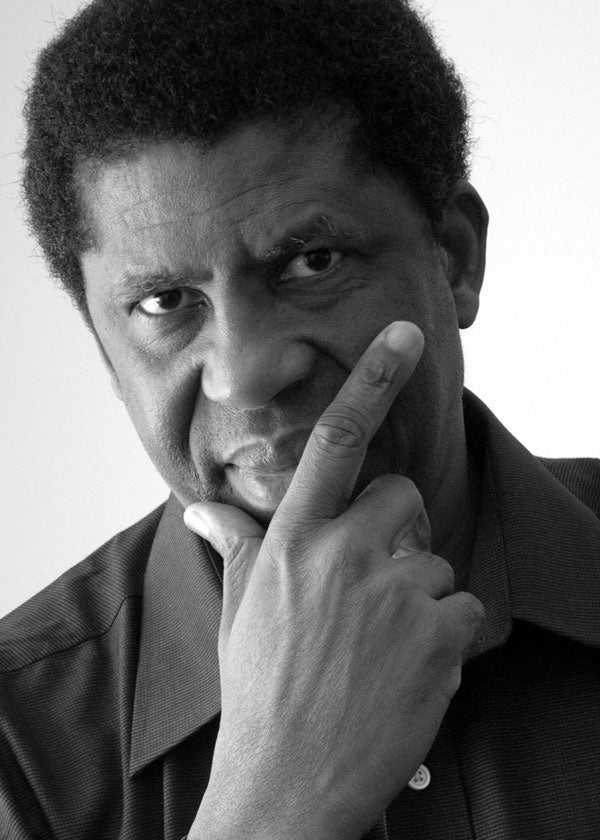Boyd Tonkin: How Haiti taught the world to sympathise
The Week In Books

Your support helps us to tell the story
From reproductive rights to climate change to Big Tech, The Independent is on the ground when the story is developing. Whether it's investigating the financials of Elon Musk's pro-Trump PAC or producing our latest documentary, 'The A Word', which shines a light on the American women fighting for reproductive rights, we know how important it is to parse out the facts from the messaging.
At such a critical moment in US history, we need reporters on the ground. Your donation allows us to keep sending journalists to speak to both sides of the story.
The Independent is trusted by Americans across the entire political spectrum. And unlike many other quality news outlets, we choose not to lock Americans out of our reporting and analysis with paywalls. We believe quality journalism should be available to everyone, paid for by those who can afford it.
Your support makes all the difference.To invoke Romantic poetry while a country bleeds and mourns might sound like hi-falutin' aestheticism wearing its cruellest face. Rest assured that it isn't meant that way. If countless people around the globe feel that they ought to give to help survivors of the Haiti earthquake and so meet what Michael Ignatieff called in a fine book The Needs of Strangers, that is because of a recent, and still fragile, ideal of solidarity. It happens that this conviction – that not only our co-citizens and cultural neighbours deserve sympathy and succour, but all peoples of whatever race or place – first took root in the Western mind thanks to events on the same island.
For the great Trinidadian historian CLR James, the revolution that in the 1790s overthrew French rule in what was then the colony of Saint-Domingue represented the first successful slave revolt in history. In Europe, its many partisans – and especially supporters of the uprising's visionary general, Toussaint L'Ouverture – pioneered the long-distance advocacy of an anti-colonial cause. Betrayed by Napoleon, who sought to re-impose slavery, Toussaint would not live to see his rebellion prevail. But, as he rotted in jail in 1802, William Wordsworth wrote for him and about him a stirring sonnet.
It assures the first African-origin leader to overcome a mighty European power that "There's not a breathing of the common wind/ That will forget thee; thou hast great allies;/ Thy friends are exultations, agonies/ And love, and man's unconquerable mind".
Toussaint, to Wordsworth, figures not a picturesque pet to patronise but as, literally, a force of nature. He stands for what is noblest in the human soul. The fledgling Enlightenment belief in universal brotherhood ("Am I not a man and a brother?", the chained African on Wedgwood's anti-slavery cameo brooches had pleaded) finds its commanding voice because of an upheaval in what is now Haiti.
Whenever a disaster unlocks the doors to benevolence around the world, commentators tend to marvel at the mobilising power of modern media: first the 19th-century telegraph and newspaper, then radio, TV and now the internet. That's true only in a secondary sense. Without a prior willingness to understand and relieve remote suffering and loss, the clamour of the victims would fall on deaf ears. Ideas always guide how we treat evidence.
Literature retains its unique ability to wipe out emotional distances. But too many reporters in Port-au-Prince have nodded to Graham Greene's The Comedians: a farce from the lower division of his work. I prefer the wonderful Haitian novel by Greene's most gifted heir, Brian Moore. No Other Life casts in fictional form the mission of the nation's ousted president: the priest Jean-Bertrand Aristide, driven by an ambiguous calling from pulpit to palace. Among Haitian-born writers, Edwidge Danticat stands out. Novels such as Breath, Eyes, Memory and The Farming of Bones refract a tormented past and troubled present through a literary lens shaded with tenderness and grace.
Danticat moved to New York as an adolescent; Jean-Euphèle Milcé lives in Port-au-Prince and has, it seems, survived the catastrophe. His novel Alphabet of the Night (Pushkin Press) captures the blended sensuality and sorrow of that accursed city.
As for the prolific Montreal-based writer Dany Laferrière, he was visiting his native island when the earthquake struck. He told Le Monde about his quest, along with another novelist, to find the local author Frankétienne. They came across him in tears, in the rubble of his house, and ready to scrap the planned production of a play.
"Don't let it drop," Laferrière insisted. "Culture will save us". For him, "this earthquake is a tragic event, but it's culture that gives structure to this land... When physical landmarks collapse, human landmarks remain". Wordsworth – and Toussaint himself – would have shared that sentiment.
P.S.What would result if, on two successive occasions, the judging panel of the Man Booker Prize was chaired by a strident right-wing Tory? An almighty spat, of course. (It would never happen, because the organisers take care to dodge such pitfalls.) Now look at the Warwick Prize for Writing, a cross-genre award worth £50,000 and funded by Warwick University. Last year, the biennial contest's first jury was chaired by China Miéville – fantasy novelist and radical, left-of-Labour activist. The cheque went to Naomi Klein for The Shock Doctrine. Next time, the chair will be the much-loved Michael Rosen, children's author – and also radical, left-of-Labour activist. The theme for entries will be "Colour". Given the choice of chairs, some potential contenders might like to ask if Warwick's preferred shade would, by any chance, be a nice deep red.
b.tonkin@independent.co.uk
Join our commenting forum
Join thought-provoking conversations, follow other Independent readers and see their replies
Comments